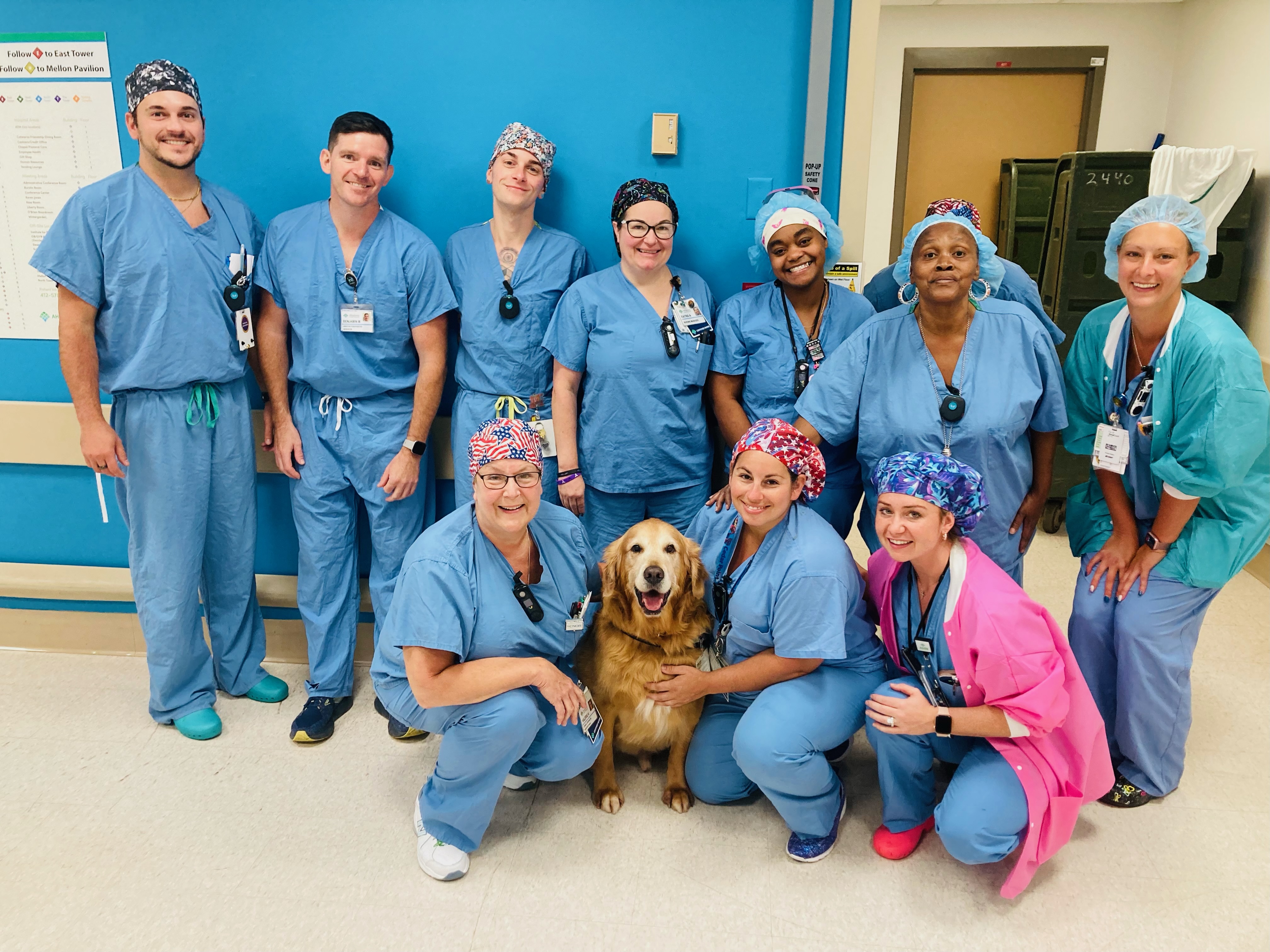Medical Dogs
M.D. Program
At Therapy Dogs United, we often refer to our M.D. Program as our "Doggie Howser, M.D. Dogs." This innovative program for healthcare facilities has been making significant inroads in the medical community, all thanks to the tireless efforts made by our certified therapy dog teams who work in collaboration with countless medical professionals. Note: All hospitals require additional trainings through their Volunteer Services Department to become an active volunteer with your certified therapy dog.
We are proud to offer our Medical Dog hospital program and services nationwide.
Participating Hospitals
- UMPC Hamot, Erie PA
- West Penn Hospital, Pittsburgh PA
- LECOM: Millcreek Community Hospital, Erie PA
- VA Medical Center, Erie PA
- Meadville Medical Center, Meadville PA
- Shriners Children's Hospital, Erie PA
- Cleveland Clinic, Main Campus
- University Hospitals (Rainbow Babies & Children's), Cleveland OH
- Ronald McDonald House, Cleveland OH
- UPMC Shadyside, Pittsburgh PA
- UPMC Children's Hospital of Pittsburgh, Pittsburgh PA
- UPMC Seneca Place (Penn Hills), Pittsburgh PA
- UH Geneva Medical Center, Ohio
- Sibley Memorial Hospital, Johns Hopkins Medical, Washington DC
- Meritus Hospital, Hagerstown, Maryland
- Exeter Hospital, New Hampshire
- Lee Medical, Fort Myers, Florida
- Cape Coral Hospital, Cape Coral Florida
- Gulf Coast Medical Center, Florida
- Duke University Hospital, Durham, North Carolina
- WakeMed Hospital, Raleigh, North Carolina
- Munson Medical Center, Traverse City, Michigan
- Ashtabula County Medical Center, Ohio
- Toledo Children's Hospital, Toledo, Ohio
- Med Center Health, Bowling Green, Kentucky
- Beth Israel Deaconess Hospital - Milton, Massachusetts
Our certified therapy dog teams visit patients receiving chemotherapy, recuperating from an illness or injury, and even those waiting in an Emergency Room lobby. Our therapy dogs are always ready to be a friend to anyone in need, and can assist with:
- Distraction from daily or planned medical treatment
- Mobility through physical interaction
- Improved communication and self-interaction with hospital staff
- Improved overall well-being and mental stability
- Relief from boredom and stress
- Friendship, comfort and support


